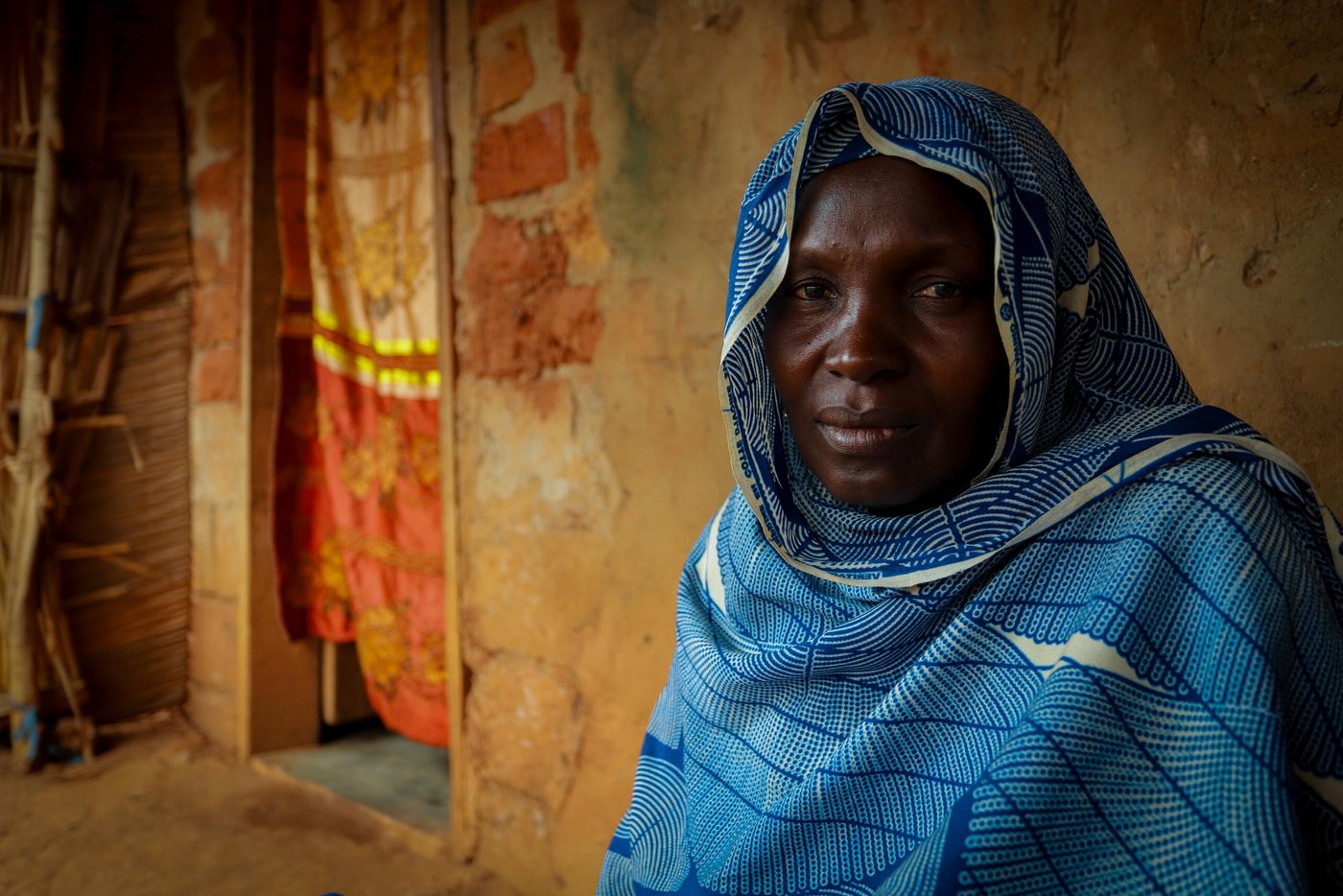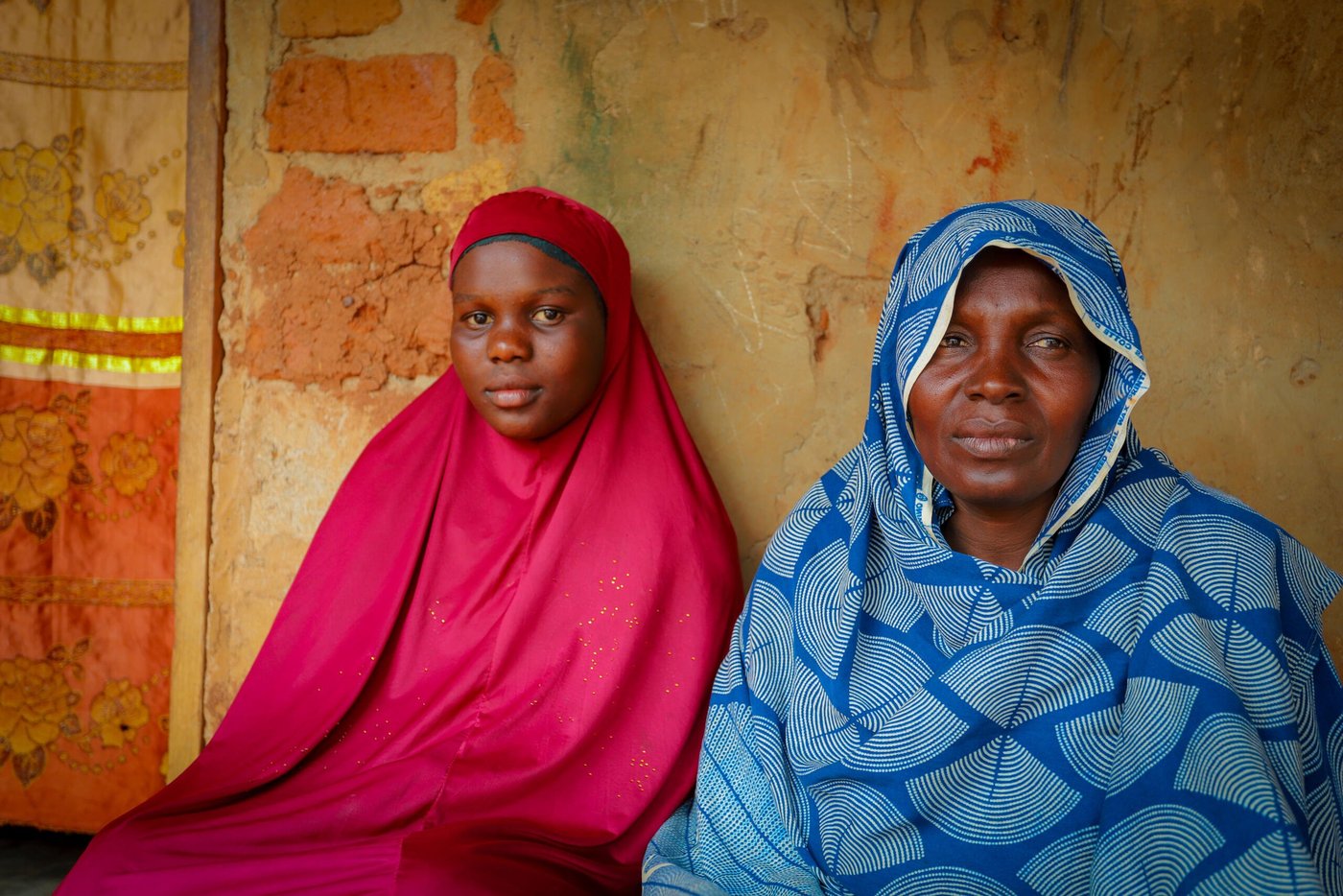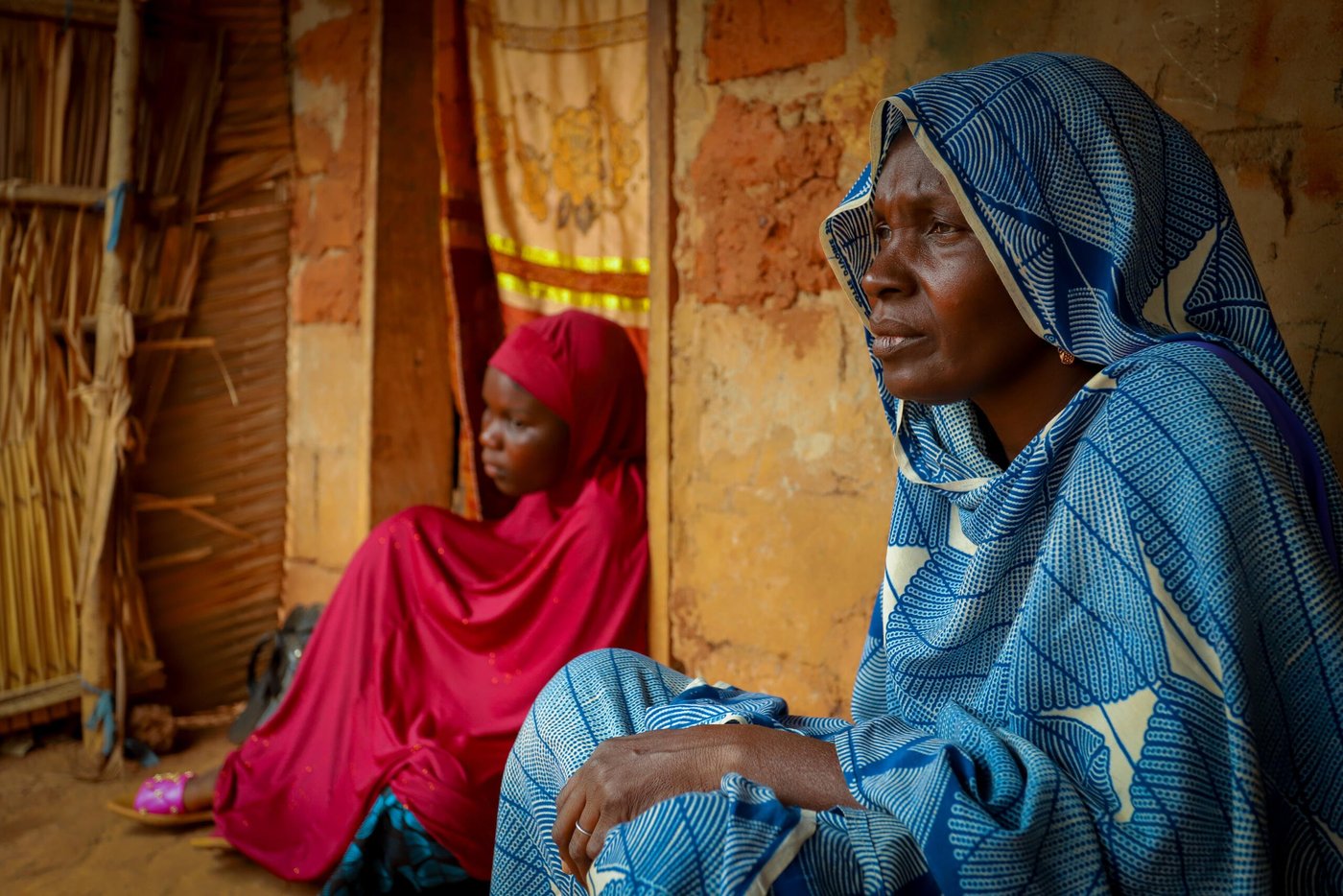Before seeking refuge became her only option, Fadimatou lived a modest yet peaceful life in her hometown of Berberati in the Central African Republic (CAR), surrounded by family. Her husband, a farmer, provided for their daily needs while she cared for their children, ensuring their education and wellbeing. Fadimatou could not imagine what was about to happen.
“I saw people holding meetings every day,” she remembers. “When I asked, I was told that everyone must be ready for war. I saw people leaving, but I didn't pay much attention.”
But war spares no one. When conflict erupted in their region in 2014, her husband was tragically killed. As violence escalated, Fadimatou had no choice but to flee with her children, leaving everything behind. After days of trekking through fear and uncertainty, she found refuge in Cameroon, hoping to rebuild her life. In the village of Kentzou, she managed to rent a small home, a fragile shelter, but one that provided a sense of safety.
Through odd jobs selling vegetables and sewing clothes, she scraped together enough to feed her children, giving them at least the reassurance of a daily meal.
“When I arrived here with my six children, I rented a room for us,” she says. “We lived in cramped conditions, but it was better than sleeping outdoors. We received aid, and my children went to school. I even had a small business, selling lots of things to help pay the rent. But now things are different.”

A fragile balance under threat
Today, everything threatens to crumble once again. Fadimatou's landlord, demanding payment for several months of overdue rent, has given her an eviction notice. With no money and no support, she doesn’t know where to go with her children. The feeling of experiencing the same situation overwhelms her: the fear of losing everything she has built and the anguish of having to start from nothing, yet again.
“I haven't received any support for two years," she says. "I have nothing to support us or even to keep a roof over our heads. Whenever I manage to get some money, I pay the rent, but when I can’t, we’re evicted. I’m forced to move from house to house every time.”
Despite occasional support from a few neighbours, resources are scarce, and she lives in constant fear of being forced to sleep on the streets with her children.
“I can’t even imagine it,” she whispers. “They have already suffered so much. How can I ask them to endure yet another life of wandering?”

A call for solidarity
In the face of this desperate situation, the community and local organisations are doing their best to support her, and the Norwegian Refugee Council (NRC) stepped in to help.
Fadimatou is among the 280,000 refugees from CAR living in Cameroon. Without identity documents, refugees struggle to find work and fully participate in society. The region's long history of poverty and marginalisation further complicates the situation, as refugees face additional obstacles to accessing basic services and enjoying housing, land and property (HLP) rights.
With support from the European Union, efforts are underway through NRC’s durable solutions programme to prevent Fadimatou’s eviction. But the road remains uncertain, and each day presents her with new challenges.
Fadimatou embodies resilience and courage, but she cannot bear the weight of displacement and insecurity alone.
Through awareness-raising sessions, door-to-door outreach, and individual counselling sessions, NRC’s information, counselling and legal assistance programme provided 2,159 people - including 1,353 refugees - with essential guidance, helping them understand their rights and the opportunities to secure them.

The hope for a better tomorrow
Fadimatou refuses to give up. Her goal is clear: to secure a future for her children.
“I want them to go to school, to have a better life. That’s all that matters to me,” she says. With no alternatives left, she's forced to depend on aid, which she receives sporadically, if at all.
Voluntary repatriation could be a way out, but Fadimatou doesn't even consider it as an option.
“There's neither the security nor the family there for me to return with my children," she says. "Where are we going to stay? Who is going to look after us? We've lost everything [in CAR], I don't want to go back."
Every act of solidarity, every bit of support, every mobilisation can change the fate of a family. Fadimatou’s struggle is shared by thousands of refugees who dream of nothing more than a place where they can live in peace, free from the constant fear of being uprooted yet again.
Sign up to our newsletter to read more stories from around the world.


